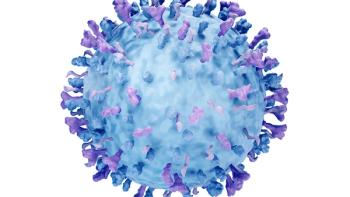
- BioPharm International-03-02-2013
- Volume 2013 Supplement
- Issue 1
CROs in a Global State of Mind
CROs are keeping pace with the increased globalization of the biopharmaceutical/pharmaceutical industry.
The increased globalization of the pharmaceutical/biopharmaceutical industry is reflective not only in the major players' shifting patterns of revenue growth from established to emerging markets, but also in their drug-development activities, including clinical research. Although the United States and Europe still account for a dominant share of global clinical-trial studies, Asia, particularly China, continues to rise in importance as a location for clinical research. As the number of clinical trials increase in Asia and other emerging markets in Latin America, the large CROs are too expanding into these markets using a combination of acquisitions, partnerships, and select internal investments.
Photo Credit: Chad Baker/Getty Images
EVALUATING THE NUMBERS
Clinical research is becoming increasingly global in nature. Although the United States and Europe still represent the dominant destination for clinical studies, Asia and Latin America also are rising in importance as a location for clinical trials.
Partnerships in drug development in China: AstraZeneca and WuXi AppTec
CROS EXPAND
As the globalization of clinical trials continues, the major CROs are expanding their operations in Asia and South America. In January 2013, Charles River Laboratories acquired a 75% ownership of Vital River, a commercial provider of research models and related services in China. For the past 10 years, Vital River has been a licensee for production and distribution of Charles River's research models in China. The agreement provides an option for Charles River to acquire the remaining 25% of Vital River at a later date. As part of the Vital River acquisition, Charles River will be the exclusive global partner for distribution of model-creation services offered through Beijing Vital Star Biotechnology. The services of Beijing Vital Star Biotechnology include humanized model creation using inducible pluripotent stem cell and other technologies.
In June 2012, Quintiles announced its plans to establish a Quintiles regional headquarters for China in Shanghai and expand laboratory-testing capabilities in China, which includes a partnership with Shanghai Clinical Research Center (SCRC). Under a joint-venture agreement, Quintiles will engage SCRC to provide laboratory-testing services to local customers. Founded under the collaborative framework of the Ministry of Science and Technology and Shanghai Municipality in 2008, SSCRC is a full-service clinical research center in China. To provide the infrastructure for its growth strategy in China, Quintiles is investing $14 million to establish a new 4000-m2 headquarters in Shanghai to serve China and nearby Asian countries. The facility is expected to accommodate more than 450 employees in the next five years. The Quintiles–SCRC collaboration follows the 2011 launch of Kun Tuo, a Quintiles' CRO that serves local and global biopharmaceutical companies in achieving successful registration of medicines in China. Quintiles began operations in China in 1997 and now has existing offices in Beijing, Dalian, Hong Kong, and Shanghai.
Quintiles is expanding elsewhere in Asia. In October 2012, Quintiles began its first global study involving Indonesia, made possible by an exclusive alliance with Prodia Clinical Laboratory for in-country testing of samples from Indonesian patients in clinical trials. In an Oct., 24, 2012, press release, Quintiles noted prior to its partnership with Prodia that Indonesia had been difficult to include in global trials because of requirements that all local samples be tested in-country before samples or data could be exported. In November 2011, Quintiles announced an exclusive partnership with the Jakarta-based Prodia Clinical Laboratory, through its sister company Prodia, which gave Quintiles exclusive access to Prodia's central laboratory for a two-year period.
To enhance its bioanalytical service offerings in Asia, Quintiles formed, in December 2012, an exclusive partnership with BioCore, a Seoul, Korea-based bioanalytical CRO. BioCore is a provider of bioanalytical liquid chromatography–tandem mass spectrometry. Under the agreement, BioCore will provide its services to Quintiles exclusively for a two-year period. Quintiles' growing global bioanalytical capabilities began with its acquisition of Advion BioServices in 2011. In July 2012, Quintiles opened a global commercial solutions business in Brazil. Quintiles had earlier expanded its global commercial solutions business into Russia, the Middle East, and North Africa.
In 2012, Covance reported that its early-development facility in Shanghai, China received a good laboratory practice certificate from China's State Food and Drug Administration. The Covance facility in Shanghai provides nonclinical safety assessment, bioanalytical, in vivo pharmacology, and drug metabolism and pharmacokinetics (DMPK) services. Covance opened the facility in August 2010.
PAREXEL opened a customer-care office in Shanghai in December 2012 for Perceptive Informatics, a subsidiary of PAREXEL and eClinical solutions provider. In November 2012, PAREXEL formed an alliance with the National Taiwan University Hospital to provide drug-development services in Taiwan. Earlier in 2012, PAREXEL was chosen by the Korea Drug Development Fund (KDDF) to serve as the fund's CRO. The KDDF is a consortium of three health-related Korean ministries: the Ministry of Knowledge Economy, the Ministry of Education, Science and Technology, and the Ministry of Health and Welfare. KDDF was established in September 2011 with assets of $1 billion to develop at least 10 new drugs by 2019 for the global market. The alliance with KDDF follows PAREXEL's 2012 collaborative research agreement with the ASAN Medical Center based in Seoul.
In October 2012, ICON and the Korea National Enterprise for Clinical Trials (KoNECT) formed a partnership to advance the clinical-trials industry in South Korea. Through the agreement, ICON and KoNECT will collaborate on a series of educational events for local and multinational pharmaceutical companies, investigators, and industry officials. KoNECT was established in 2007 with the support of the South Korean government, academic institutions, and life-science industries to provides clinical-research resources, training, and support.
In February 2012, ICON completed its acquisition of BeijingWits Medical Consulting, a CRO in China with staff located in Beijing, Shanghai, Chengdu, Guangzhou, Wuhan, and Hong Kong. The company provides services for Phase I to Phase IV clinical studies to global and local pharmaceutical, medical device, and biotechnology companies. Also, in 2012, INC Research opened a facility in Seoul, South Korea. INC Research provides Phase I to IV clinical development services in the Asia/Pacific region with coverage across China, India, Australia, Singapore, Philippines, South Korea, Taiwan, Hong Kong, Malaysia, Thailand, and New Zealand.
The CROs WuXi PharmaTech and PRA signed a joint-venture agreement in December 2012 to offer a broad platform of Phase I–IV clinical trial services in China, Hong Kong, and Macau. The joint venture will provide services, including clinical-trial monitoring, project management, regulatory strategy and submissions, data management, biostatistics, drug-safety reporting, and medical monitoring. The clinical operations of WuXi and PRA in China will combine to operate as an independent CRO and will be jointly owned by their respective parent companies. WuXi will contribute clinical and regulatory experience to the joint venture from its China-based clinical organization. That organization covers all regions of the country and has employees working in 16 Chinese cities, with offices in Shanghai, Beijing, and Guangzhou. WuXi also will supply laboratory services to the joint venture through a preferred-provider arrangement. PRA will support the joint venture on with its global expertise and staffing and with its China-based staff and global technology capabilities, encompassing data capture, trial management, and other information-technology systems. The companies will market the joint venture's services to their respective customers. In February 2012, PRA also opened an office in Singapore for PRA's central clinical operations location for the region.
PATRICIA VAN ARNUM is executive editor of Pharmaceutical Technology,
Articles in this issue
almost 13 years ago
Managing Contract Manufacturing Organization Relationshipsalmost 13 years ago
Securing the Supply Chainalmost 13 years ago
Emerging Outsourcing Trends in 2013almost 13 years ago
Quality and Regulatory Leadership: Right-Sizing Need and Costalmost 13 years ago
Achieving More Effective and Efficient GMP AuditingNewsletter
Stay at the forefront of biopharmaceutical innovation—subscribe to BioPharm International for expert insights on drug development, manufacturing, compliance, and more.




